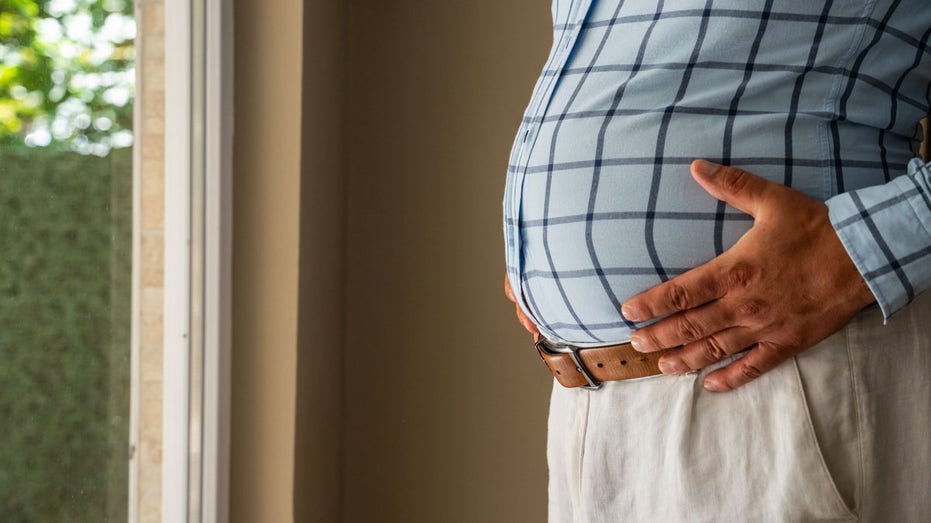During active cancer treatment, patients face many smaller battles on the path to remission.
One of those lesser-known struggles is a condition known as chemo mouth, a painful side effect of chemotherapy and radiation.
For some, chemo mouth can result in mouth sores and other uncomfortable symptoms, like a limited ability to eat, drink or even speak, according to experts.
‘I’M A CANCER SURVIVOR – HERE’S WHAT I’VE CUT FROM MY KITCHEN’
In an on-camera interview with Fox News Digital, Dr. Rajiv Saini, a dentist and periodontal specialist from Katy, Texas, discussed the seldom spoken-about condition.
As cancer rates trend high throughout the U.S. — with the National Cancer Institute projecting that 26 million people will be diagnosed by 2030 — Saini said chemo mouth is likely to be one of the most common side effects.
Among those who have had head or neck cancer, 90% will experience these symptoms. Out of all cancer survivors, around 40% will suffer from the condition.
THE CANCER PREVENTION DIET: 6 SMARTS TIPS FROM A NUTRITIONIST ON WHAT TO EAT AND WHY
Saini, a graduate of Harvard Medical School, detailed how the main symptoms of chemo mouth are red, swollen and painful sores in the mouth, also known as oral mucositis.
Patients may also experience a burning sensation that can be intensified by spicy food. They also face a higher risk of contracting fungal infections.
Chemo mouth can also cause xerostomia, commonly known as dry mouth, as well as a metallic taste, which can disrupt appetite.
“Cancer treatment damages the salivary glands present in the mouth, which are responsible for producing the right amount of saliva,” Saini said. “So it really deteriorates the oral condition.”
BRUSH, FLOSS, MOUTHWASH: DENTISTS REVEAL WHAT THEY BELIEVE IS THE CORRECT ORDER
“When your mouth is dry, it lacks all the minerals, all the natural enzymes,” he added. “There’s an imbalance in the oral microbiome.”
Saini shared that one of the “most overlooked challenges” of cancer recovery and chemo mouth is that it makes it “nearly impossible” for parents to speak with family members, even after beating the disease.
“As chemotherapy and radiation worsen sores, inflammation and dryness in the oral cavity, even the simplest words become agonizing,” he said.
“This unspoken side effect not only affects their ability to communicate, but also takes an emotional toll, leaving them feeling isolated from their own families during an already overwhelming battle.”
A weakened immune system will leave patients more susceptible to complications like chemo mouth, according to Saini.
CHILDREN EXPOSED TO HIGHER FLUORIDE LEVELS FOUND TO HAVE LOWER IQS, STUDY REVEALS
The dentist recommended that cancer patients stay consistent with routine dental exams, especially directly following a cancer diagnosis, to address any issues that might worsen during treatment.
“You have a window of opportunity where you can immediately go within the next two or three days, set up an appointment with a dentist and get your teeth cleaned,” he advised.
“If there are any initial, small dental caries and cavities, they should be fixed. If you have a gum infection, a deep cleaning should be done, so that you are ready.”
Saini urged cancer patients to steer clear of oral mouthwashes and rinses with alcohol and colorful additives, as these chemicals can be harmful to a compromised immune system. They can also aggravate sores and further inflame the mouth.
Saltwater rinses have been shown to be effective in treating chemo mouth and alleviating symptoms, Saini said.
Specifically, sea saltwater offers a variety of minerals that can help heal the mouth, such as sodium, calcium, zinc, chromium and silicon, which Saini described as “well-balanced in nature.”
‘I’M A DENTIST – HERE’S WHY YOU SHOULD NEVER KEEP YOUR TOOTHBRUSH NEAR THE TOILET’
“Sea salt usually works in a very natural way by providing all the minerals that help the healing of these cells in a much faster way as compared to any oral care product,” he noted.
Saini, who is also the chief scientific officer for sea saltwater rinse company H2Ocean, referred to research that found sea salt has therapeutic impacts on the oral cavity, minimizes dental complications and accelerates the healing process.
Dr. Monique Gary, breast surgical oncologist and chief medical officer of Bexa, a breast exam provider based in California, agrees that a saltwater rinse, or salt plus baking soda in water, can be helpful.
“Typically, I recommend a saltwater rinse to my patients over an unsalted one, as it can have more of a soothing effect,” she told Fox News Digital.
“Magic mouthwash” is an especially helpful rinse, Gary said. It typically contains an antihistamine and topical anesthetic, and may or may not include an antacid, antibiotic and antifungal.
CLICK HERE TO SIGN UP FOR OUR HEALTH NEWSLETTER
Gary also recommends that patients avoid dehydration and use a soothing lip balm to prevent cracked lips.
Although dental care is crucial for cancer recovery, there aren’t dedicated dental professionals attached to cancer clinics, according to Saini, which can result in the delay of oral care intervention.
For more Health articles, visit www.foxnews.com/health.
“This is a very big piece of the pie we are missing here and that is affecting [patients’] day-to-day lives,” he said.




